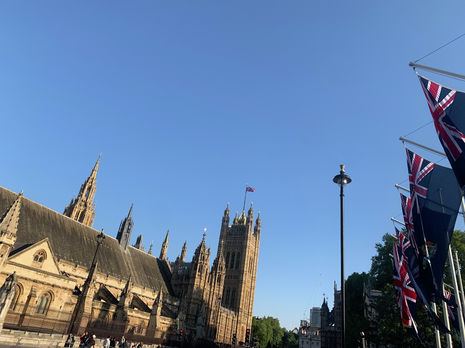Yes, I love Britain
Daisy Stewart Henderson argues that patriotism shouldn’t be the preserve of the far-right

Yes, I love Britain. And no, I didn’t vote for Reform UK. Frankly, writing that sentence made me writhe with embarrassment a little. I’m very aware that outside of what I would hope is a relatively small far-right echo chamber, being patriotic is one of the least cool things you can be as a young person. Britishness even more so; not least when you spent your teenage years in Glasgow, where it’s safe to say I didn’t bring up my dreams of retiring to a village in the West Country, or the fact that I was actually quite moved by the Queen’s death, with my schoolmates. But since moving to Cambridge, enabling me to see the best and the worst of two very different corners of the United Kingdom, I have embraced my Britishness in a rather antithetical iteration of Gen-Z self-acceptance. Stranger still, it has brought me a sense of relief; and of purpose.
I’m beginning to wonder if these feelings are why what is, in actual fact, a very small subset of the population appears to have such political strength in the form of Reform UK, and far-right populism more generally. Growing up surrounded by left-wing people, it often felt like a certain degree of national self-loathing was an essential characteristic of progressivism. And I completely understand why, in a nation whose history is one of empire, and exploitation, and exclusion, blind reverence for one’s country is a stance which is untenable with pretty much any future other than the creation of a nation in the image of Blackpool’s Reform UK pub.
“I have come to recognise the pertinence of the pater in patriotism”
In fact, the self-critical nature that I associate with Britishness (in contrast, for example, to Englishness or even Scottishness) is part of why I feel I can accept it. Having grown up under the SNP in Scotland, I find even the most socially acceptable, ‘progressive’ flavours of nationalist sentiment to be fundamentally unpalatable. Because I spent a lot of my childhood abroad, have an English dad, and don’t really have the accent, Scottishness, in my experience, often felt negatively defined; I never felt Scottish enough to really claim it. But Britishness, being the product of a union, and separate from these often more exclusionary national labels, has, in my view, a unique openness. Indeed, even during a dark moment of xenophobic hatred last summer, only 17% of the population said it was very important to have been born in Britain to be “truly British”. This capacity for inclusion and openness to self-examination gives an embrace of Britishness the power to rebuke the narratives that have been created in its own name by the far-right.
Don’t get me wrong - I’m certainly not advocating blind veneration. I love Britain in the way you love that one relative who may drive you a little mad, and whose views you may find a little absurd. Through the many hours of aimless pondering that my humanities degree affords me, I have come to recognise the pertinence of the pater in patriotism, a word which historically would have made me cringe. At the end of the day, our nationality is much like our family – something we are assigned by the whims of fate, and which it is our instinct to love, or at least feel invested in, if for no other reason than cold necessity. Inevitably, it shapes us, so why not engage with it enough to care about shaping it for the better?
“I love Britain in the way you love that one relative who may drive you a little mad”
Because ultimately, scrutiny and love can co-exist. In fact, I think they encourage one another. If you simply don’t like your country, or don’t feel invested in it, what’s the point in working to improve it? The power that Reform has is passion, borne out of love, and channelled into all the wrong places, but nonetheless motivating action to bring about change. And there’s no hope of overcoming it with tepid apathy.
So yes, I suppose I am patriotic. Because without some patriotism, how are any of us supposed to care about the fates of the people we share our nation with, but whom we may never personally know? It sounds thoroughly silly, but the political apathy of my self-loathing teenage years has been dissolved through embracing my love of roast dinners and cups of tea, an orderly queue and ceilidhs with my Cambridge friends, and Anglican hymns, including I Vow To Thee My Country. While its lyrical aspiration of a “love that asks no question” may miss the point, I think there’s a great deal of power for good in a “love that stands the test”.
 News / Colleges charge different rents for the same Castle Street accommodation2 March 2026
News / Colleges charge different rents for the same Castle Street accommodation2 March 2026 News / News in Brief: waterworks, wine woes, and workplace wins 1 March 2026
News / News in Brief: waterworks, wine woes, and workplace wins 1 March 2026 News / Climate activists protest for ‘ethical careers policy’1 March 2026
News / Climate activists protest for ‘ethical careers policy’1 March 2026 News / Angela Merkel among Cambridge honorary degree nominees27 February 2026
News / Angela Merkel among Cambridge honorary degree nominees27 February 2026 News / Private school teacher who lied about Cambridge degree barred from teaching27 February 2026
News / Private school teacher who lied about Cambridge degree barred from teaching27 February 2026









